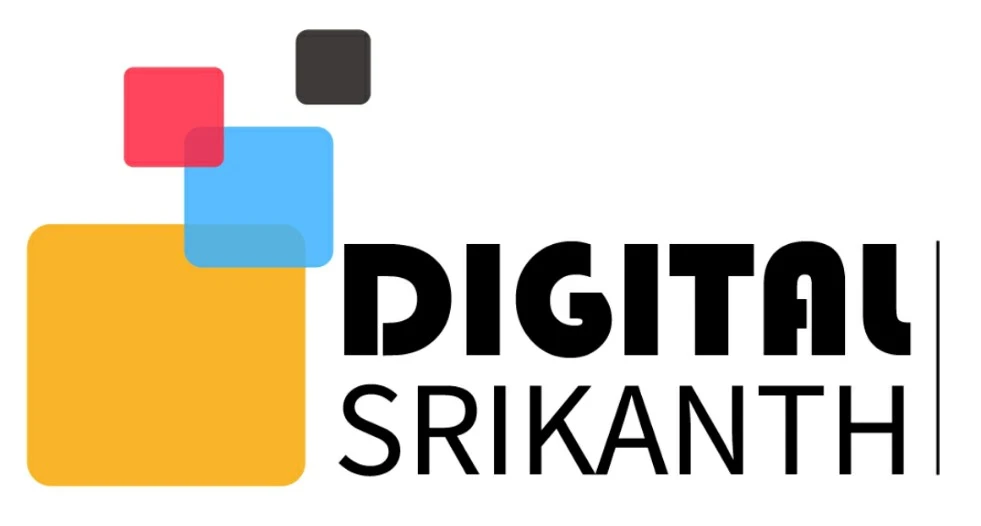Artificial Intelligence (AI) is revolutionizing digital marketing and reshaping how businesses engage with their audiences. By automating tasks, analyzing large amounts of data and delivering personalized customer experiences, AI is a game changer. In 2025, we see AI continuing to evolve and unlock new possibilities for businesses to succeed in a competitive environment. This article explores the trends and applications of AI in digital marketing with examples and insights to make it easily understandable for everyone.
Importance of AI in Digital Marketing

AI is important for digital marketing because it enhances efficiency, improves accuracy and creates opportunities for meaningful customer engagement. With AI, businesses can:
- Understand Customer Behavior: AI uses data to predict customer preferences and enables businesses to provide tailored solutions.
- Automate Repetitive Tasks: Tasks like content scheduling, email marketing and customer support are simplified with AI.
- Deliver Personalization: AI ensures that marketing efforts resonate with customers on an individual level.
For example, e commerce platforms use AI powered recommendation systems to suggest products improving user experience and boosting sales.
Trends in AI in Digital Marketing for 2025

As technology grows the use of AI in digital marketing brings new trends that reshape strategies. Let us explore these trends and their effects on businesses.
1. Predictive Analytics
Predictive analytics studies past data to predict how customers might behave. This helps marketers plan campaigns that match customer needs. For instance, an online bookstore could look at a reader’s previous purchases and suggest new books in their favorite genre.
Predictive analytics enables:
- Better inventory management.
- Targeted promotions.
- Improved customer retention.
With AI in digital marketing, predictive analytics becomes essential for making effective decisions.
2. AI Generated Content
AI content generation tools like Gemini, Jasper and ChatGPT can create high quality and engaging content within minutes. These tools are invaluable for producing:
- Blog posts.
- Social media captions.
- Email campaigns.
In 2025, these tools will be more advanced, generating content that matches brand voice and audience expectations. For instance, a small business can use AI to draft professional newsletters without hiring a full-time writer.
3. Smarter Chatbots
Chatbots have evolved from basic Q&A systems to intelligent assistants capable of managing complex customer interactions. These AI-powered chatbots:
- Offer 24/7 customer support.
- Handle multiple languages.
- Provide personalized product recommendations.
For example, a fitness app can use an AI chatbot to guide users through workouts, answer fitness related questions and provide nutrition tips. This keeps users engaged and reduces the burden on customer support teams.
4. Voice Search Optimization
With the increasing use of smart speakers and virtual assistants, voice search is changing SEO strategies. People phrase voice searches differently from typed queries, often using conversational language. Businesses must adapt by:
- Using natural language in content.
- Answering common questions directly.
- Optimizing for local search terms.
For example, a local restaurant might optimize its content for queries like, “Where can I find the best pizza near me?”
5. Visual Search Technology
Visual search allows users to upload images and find related products or information. AI powers this technology making it a vital trend in 2025. Platforms like Pinterest and Google Lens lead the way in visual search innovation.
Applications include:
- Fashion retail: Customers can find clothing by uploading photos.
- Home decor: Users can discover furniture styles based on pictures.
- Travel: Travelers can learn about destinations by uploading images.
6. Sentiment Analysis
Sentiment analysis uses AI to know public opinion about a brand or product. By analyzing customer feedback, social media comments and reviews, businesses can understand emotions associated with their offerings.
Benefits of sentiment analysis include:
- Identifying areas for improvement.
- Customizing campaigns to match customer sentiments.
- Building stronger customer relationships.
For example, a gaming company can review user feedback to improve its latest release and make it more appealing.
7. Automated Ad Buying
Programmatic advertising uses AI to automate ad buying and placement. This ensures ads reach the right audience at the right time and maximizes return on investment (ROI).
Key benefits include:
- Real time bidding for ad spaces.
- Precise audience targeting.
- Reduced ad spend wastage.
For example, an online travel agency can target individuals searching for vacation deals ensuring ads are relevant and effective.
Implementing a comprehensive digital marketing plan can guide businesses in effectively utilizing AI trends and aligning them with their overall marketing strategy.
Applications of AI in Digital Marketing

AI’s applications in digital marketing are diverse enabling businesses to optimize processes and deliver impactful campaigns. Here is a closer look at how AI is transforming marketing:
1. Personalization
AI driven personalization ensures marketing efforts cater to individual preferences. Streaming platforms like Netflix and Spotify use AI to recommend content based on user behavior, enhancing customer satisfaction and retention.
Personalization involves:
- Tailored email campaigns.
- Customized product recommendations.
- Dynamic website experiences.
2. Enhanced Email Marketing
AI improves email marketing by optimizing content, timing, and audience segmentation. For instance, AI can:
- Analyze email open rates.
- Craft subject lines that boost engagement.
- Send emails at times when recipients are most likely to respond.
A clothing brand can use AI to send discounts on items customers have previously viewed increasing the chances of a purchase.
3. Advanced Chatbots
Chatbots are essential for providing instant support. Beyond answering FAQs, they:
- Help customers navigate websites.
- Assist in placing orders.
- Collect feedback.
For example, an airline chatbot can help travelers book tickets, check flight statuses and resolve common issues without human interaction.
4. Dynamic Pricing
AI helps set flexible prices by studying demand levels, competitor rates and what customers are ready to pay. This method keeps prices competitive and increases profits.
Examples include:
- E commerce platforms offering discounts during high demand periods.
- Ride sharing apps adjusting fares based on traffic and demand.
5. Social Media Insights
AI tools analyze social media trends and audience behavior providing actionable insights for marketers. Businesses can:
- Identify trending topics.
- Track campaign performance.
- Discover influencer opportunities.
In 2025, AI in digital marketing will make social media strategies more data driven and effective.
6. Fraud Prevention
Online advertising fraud such as fake clicks and bots can drain marketing budgets. AI detects and prevents fraudulent activities ensuring ad spend is used wisely.
For instance, AI can identify unusual patterns in click through rates alerting businesses to potential fraud.
7. Customer Journey Mapping
AI tracks customer interactions across various touchpoints and creates a complete picture of the customer journey. This helps businesses:
- Understand pain points.
- Improve user experience.
- Increase conversion rates.
An online retailer might notice customers abandoning carts due to complicated checkouts and simplify the process to boost sales.
Benefits of AI in Digital Marketing
AI offers several benefits that make it indispensable for modern marketing:
- Improved Efficiency: Automation reduces time spent on repetitive tasks.
- Better Targeting: AI ensures marketing efforts reach the right audience.
- Enhanced Creativity: With mundane tasks automated, marketers can focus on innovation.
- Cost Savings: AI optimizes budgets by identifying effective strategies.
- Scalability: AI tools adapt and evolve with businesses to support their growth and expansion.
The advantages of AI-driven marketing are enhanced when businesses understand the full potential of digital marketing. Learn more about the benefits of digital marketing for businesses.
Challenges and Ethical Concerns
AI brings significant changes but also comes with its own challenges:
- Data Privacy: Ensuring compliance with regulations like GDPR is essential.
- Bias in Algorithms: AI systems must be trained on diverse data to avoid biased outcomes.
- High Costs: Small businesses may find advanced AI tools expensive.
- Balancing Automation and Human Touch: Over reliance on AI can make marketing feel impersonal.
The Future of AI in Digital Marketing
AI’s role in digital marketing will only grow in the coming years. Key predictions include:
- More Creative Tools: AI will assist in creating videos, graphics and interactive content.
- Deeper Personalization: Marketing campaigns will become more targeted and relevant.
- Real-Time Adaptability: AI will enable instant adjustments to campaigns based on performance.
- Better Integration: AI will unify efforts across channels ensuring consistent messaging.
Conclusion
AI in digital marketing is shaping the future of how businesses connect with their audience. By adopting trends like predictive analytics, personalized content and smarter chatbots, companies can stay ahead in a competitive landscape. However, it is essential to use AI to ethically balance innovation with customer trust. As we step into 2025, the opportunities presented by AI in digital marketing are endless and promising growth and success for those who adapt.
Frequently Asked Questions
1. How is AI used in digital marketing?
AI is used in digital marketing to automate tasks like content creation, customer support, and email campaigns. It also analyzes consumer behavior, predicts trends, and delivers personalized experiences to target audiences effectively.
2. What AI tools are used in digital marketing?
Popular AI tools in digital marketing include chatbots for customer service, AI-driven analytics platforms, content generation tools like Jasper, and automation software for email marketing and ad campaigns.
3. What is the future of AI in digital marketing?
The future of AI in digital marketing includes deeper personalization, real-time campaign adjustments, creative tools for content generation, and seamless integration across marketing channels for a consistent customer experience.
4. Will AI take over digital marketing?
While AI will play a significant role in automating processes and enhancing efficiency, it is unlikely to completely replace human creativity and strategic planning in digital marketing. AI will complement, not take over, the field.
5. What are the benefits of AI in marketing?
AI enhances marketing by improving efficiency, reducing costs, offering better targeting, automating repetitive tasks, and delivering personalized customer experiences that drive engagement and conversions.
Images By: FreePik


